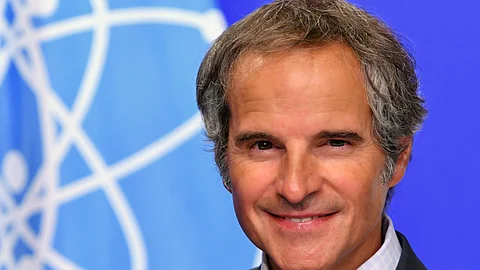

The Director-General of the International Atomic Energy Agency (IAEA), Rafael Grossi, stated in an interview with CNN on Wednesday that the agency has “no proof of a systematic effort [by Iran] to move toward a nuclear weapon.”
Grossi’s remarks directly contradict recent claims made by U.S. President Donald Trump, who on Tuesday asserted that Iran was “very close” to acquiring a nuclear weapon.
In his interview, Grossi explained that while Iran may have stockpiled enough enriched uranium, the development of an actual nuclear weapon would still require extensive testing and technological advancements. “Not for tomorrow,” he emphasized, downplaying the immediacy of any threat.
Grossi’s comments align with an earlier U.S. intelligence assessment delivered in March by Director of National Intelligence (DNI) Tulsi Gabbard. In that report, Gabbard stated that Iran was neither actively building a nuclear weapon nor had Supreme Leader Ayatollah Ali Khamenei issued a political directive to initiate one.
Gabbard’s assessment, as the nominal chief over all of the U.S. civilian intelligence agencies, would in normal times be taken as the assessment of the entire U.S. intelligence community.
When asked on Tuesday about Gabbard’s March findings, President Trump responded dismissively: “I don’t care what Tulsi says,” before reiterating his belief that Iran was “very close” to developing a bomb.
Trump’s personal assessment, which he has acknowledged is not based on U.S. intelligence findings, marks a significant departure from the more unified messaging seen in the run-up to the 2003 Iraq War. At that time, President George W. Bush's administration publicly aligned around the now-discredited claim that Iraqi President Saddam Hussein possessed weapons of mass destruction.
The growing disconnect between Trump and members of his own administration, including Gabbard, reflects deeper divisions over the United States’ potential involvement in a wider Middle East conflict. Trump’s increasingly confrontational rhetoric toward Iran—most recently threatening Ayatollah Khamenei with assassination—has also sparked unease among members of his political base, many of whom oppose further military entanglements in the region.